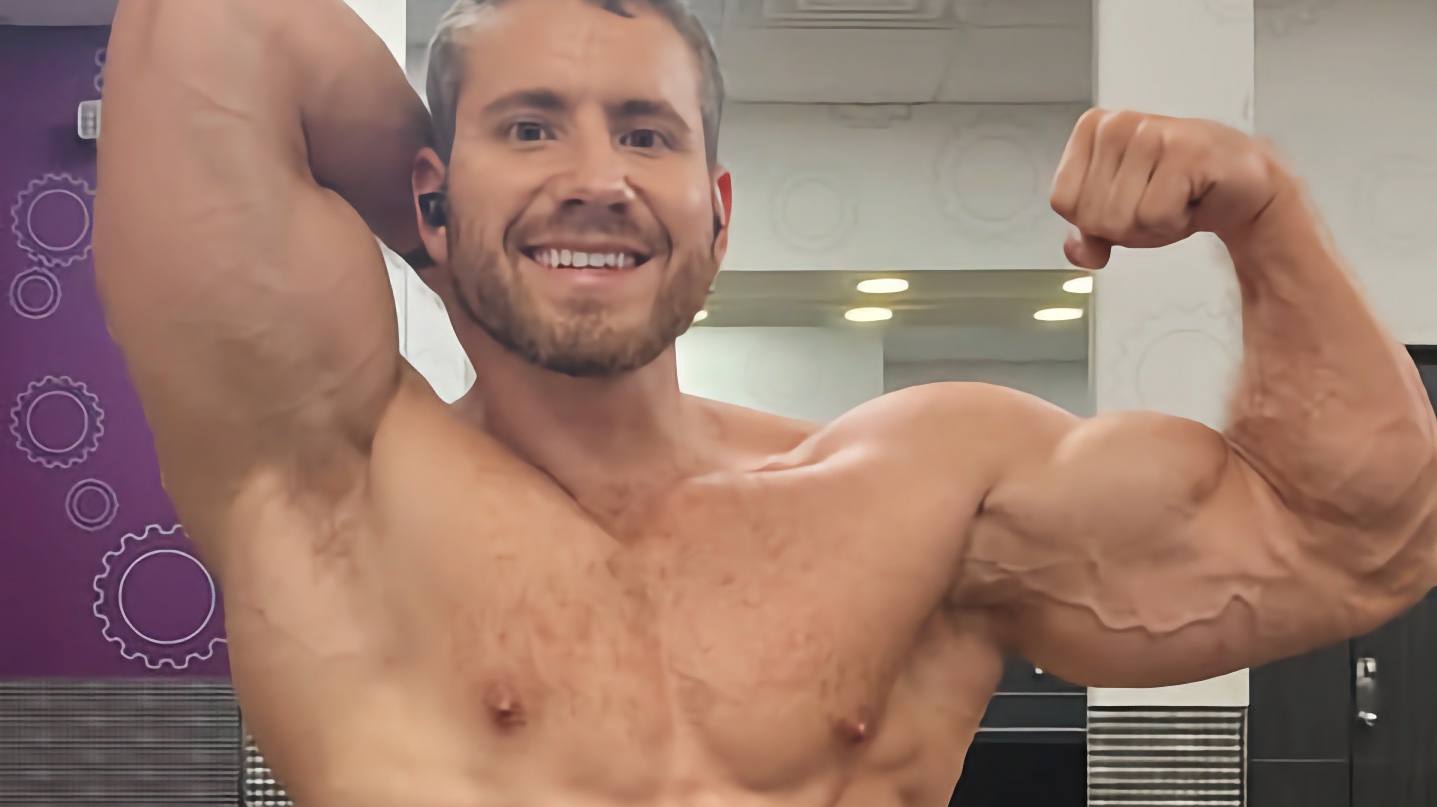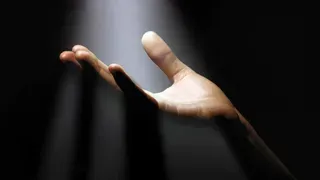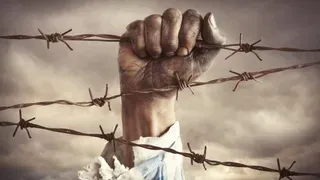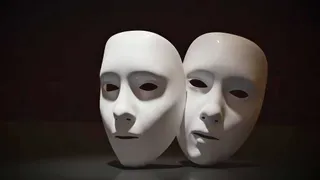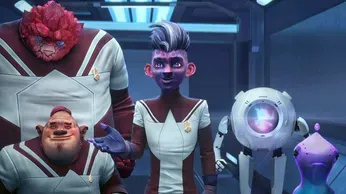
July 2, 2024
Cultural Comment: Viewing Season 2 of 'Star Trek: Prodigy' with an Eye to Grownup Stuff
Kilian Melloy READ TIME: 4 MIN.
The 20-episode second season of the YA animated series "Star Trek: Prodigy" is a twisty time-travel yarn with a plot full of perplexing paradoxes. It also feels like a commentary on some very grown-up politics.
For those who might not have seen the show, it's a CGI-animated, half-hour series that takes place between "Star Trek: The Next Generation" and "Star Trek: Picard," falling much closer to the "Picard" side of that span of stardates. Supposedly for younger viewers, the series' first season – also a whopping 20 episodes – was unexpectedly well-written and produced. In fact, the show's quality – and it's very "Star Trek"-ness – make it a front runner among the bevy of shows that comprise the so-called "modern era" of "Star Trek," which began with the 2017 premiere of "Star Trek: Discovery" (which recently wrapped up its fifth and final season) and is set to continue next year with Season Three of "Star Trek: Strange New Worlds," the premiere of "Star Trek: Starfleet Academy," and the debut of the first streaming movie, "Star Trek" Section 31," starring the incomparable Michelle Yeoh.
Those who have brushed "Prodigy" off as mere kids' stuff without giving it a watch have no idea what they are missing. The series deals in all the usual "Trek" tropes like strange natural phenomena, hostile aliens, time travel, and parallel realities, and it features what is supposedly a cast of juveniles of various races, kids who were enslaved on a mining planet but, after discovering an abandoned Starfleet vessel, managed an escape. Not knowing about the Federation – the galaxy's good guys – and having only experienced exploitation at the hands of a bad guy, this crew of scrappy kids are at first unwilling to return the ship to the Federation, but because the ship (and its missing crew) are important to both Starfleet and the series antagonist – their enslaver – they are inevitably drawn into a complex drama that's more nuanced than a simple "heroes and villains." It turns out that the putative bad guy – the "Diviner" (John Noble) – is a time traveler attempting to prevent the catastrophic consequences of his planet's first contact with the Federation, half a century in the future.
As Season Two dawns, that complex, morally layered storyline only grows in nuance and sophistication. The kids are now Starfleet "hopefuls" – not quite cadets, but definitely involved with the Academy. But there are nasty repercussions to their Season One adventures in the form of an unforeseen temporal paradox and, along with it, a new villain: A would-be planetary autocrat seeking to impose an authoritarian regime, driven by a combination of vanity, narcissism, and revenge. What the villain does not comprehend, however, is that her plans to attack the Federation – and to entrap, destroy, and otherwise annihilate our heroes – are taking place, as are her dictatorial ambitions, against a backdrop of (literally) looming universal doom.
Is any of this sounding familiar?
Trump? The Heritage Foundation and its so-called "Project 2025," a fascistic blueprint for a Hungary-like illiberal remodeling of American democracy? Climate change? Rising authoritarianism around the world? Yes, yes, yes, and yes... hell, the show even features a lethal civil war that ravages an entire planet; it's a war that's destined to come to pass unless the show's crew of juvenile heroes can (with the help of some some legacy characters) unwind a temporal paradox caused by changing one tiny detail in the past, and put the universe to rights again.
Given the long lead time needed to produce a series like this, and the fact that "Prodigy" first premiered three years ago, it seems dubious that the show's producers (the Hageman brothers, Kevin and Dan) intended this season to be such a precise, chillingly accurate allegory for the political situation we find ourselves in right now, even as the show's second (and, sadly, probably final) season premieres.
But the show's plotting is so exciting, its dilemmas so disturbing, and its stakes – as well as its excitement quotient – so high, you can't help but think that the Hagemans and their writers have read some tea leaves, mulled over similar moments in human history (they have happened often, and they usually don't lead to happy places), and decided to slip us some real-world-relevant, candy-coated entertainment in the disguise of a kids' show.
It is a kids' show – sort of. It has appealing young characters, a tone that stays away from getting too dark despite the show's willingness to show us the deaths of heroes (and make those deaths permanent), and a production design (if you can call it that when discussing a CGI animated series) that's glossy, colorful, and upbeat.
But "Star Trek: Prodigy" also has what every meaningful "Star Trek" series has had for almost six decades: Serious social commentary baked into the sci-fi hijinks. The miracle is that "Prodigy" integrates that commentary so successfully, without resorting to ridiculous (and frankly dumb) shortcuts that "Star Trek," all the way back to the original series, has habitually turned to.
Paramount+ axed the series after its first season aired and before its second season was quite ready. The streamer wouldn't even give the show's second season a home; it's ended up at Netflix, which some fans hope will decide it's valuable enough to bring back for a third season. If they do, the show has enough potential to fuel another fun-filled and substantive foray into the stars – and into our own too-contemporary follies. (Season Two doesn't end with a cliffhanger, exactly, but it does tie into another "Trek" show's continuity, and it sets up its own next adventure very nicely.)
"Prodigy" may be the best of the current crop of "Star Trek" shows. Season Two, far from falling short or suffering a sophomore slump, builds on the promise of Season One and delivers on all counts.
That's all I'll say here. I'm writing a review of the entire season, after all, and I don't want to spoil anything. Check it out for yourself, and you'll see what I'm talking about.
And for gods' sakes: Be a hero worthy of the future this November. Go on your own critical away mission, get out, and vote. Happy endings don't write themselves, after all.
Kilian Melloy serves as EDGE Media Network's Associate Arts Editor and Staff Contributor. His professional memberships include the National Lesbian & Gay Journalists Association, the Boston Online Film Critics Association, The Gay and Lesbian Entertainment Critics Association, and the Boston Theater Critics Association's Elliot Norton Awards Committee.
